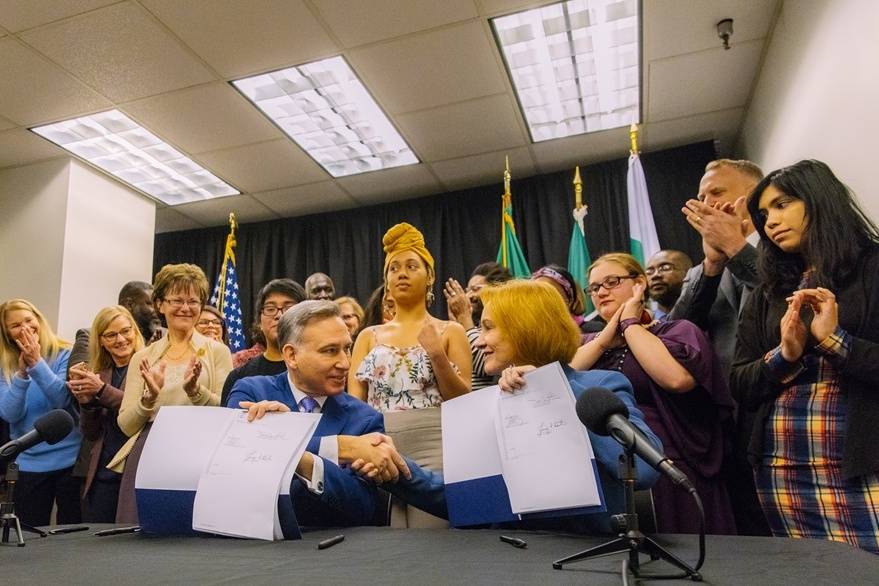The first meeting of a new homelessness authority designed to bridge service gaps between various agencies in King County was largely spent on formalities, but some latent tensions began to appear.
The Regional Homelessness Authority was created by agreement last December. It’s designed to consolidate homelessness services between the county, Seattle and cities in the region. On May 21, the guiding committee — which will help create the rest of the agency — met for the first time.
While much of the meeting was a formal meet-and-greet and schedule setting affair, there was a disagreement between members on who should be elected co-chair. King County Councilmember Joe McDermott nominated King County Executive Dow Constantine, Seattle mayor Jenny Durkan and Renton City Councilmember Ed Prince.
Three members of the committee have lived experience with homelessness, including Jonathan Hemphill, who stated at least one of the co-chairs should have first-hand knowledge of homelessness. He was supported by the other two members with lived experience, as well as Seattle City Councilmember Lorena Gonzalez.
“[It] would send a very strong signal that we are indeed serious about taking a different approach,” Gonzalez said.
During debates on whether Seattle should approve the agency agreement in December, Gonzalez was worried about politics taking hold in the process. At Thursday’s meeting, she expressed concerns about all the chairs being elected officials.
The 12-person guiding committee seats are split evenly between representatives from Seattle, the county, other cities in the region and those with lived experience.
The selection of co-chairs was tabled until the June meeting. Auburn Mayor Nancy Backus said if all of the other three groups had chairs, then those representing Sound Cities Association cities should also have a chair position.
The committee will be holding meetings every third Thursday of the month. They will be working to create an implementation board to help establish the agency. The two groups will then search for and select a CEO by October.
Once it’s stablished, the regional homelessness authority will consolidate emergency response resources, budgets, planning and staff into a single entity. It is an intergovernmental agency instead of a public authority.
During the agreement’s drafting, suburban cities said they didn’t have enough representation. Homelessness aid organizations said the same of those with lived experience.
However, fragmentation in the response to homelessness between different government agencies has created a barrier to addressing the problem effectively. If the agency is successful, it will be able to let the various groups hash out their differences and find solutions to the persistent problem of people ending up on the streets.
It’s being funded by $73 million annually from Seattle, and another $55 million from King County.


